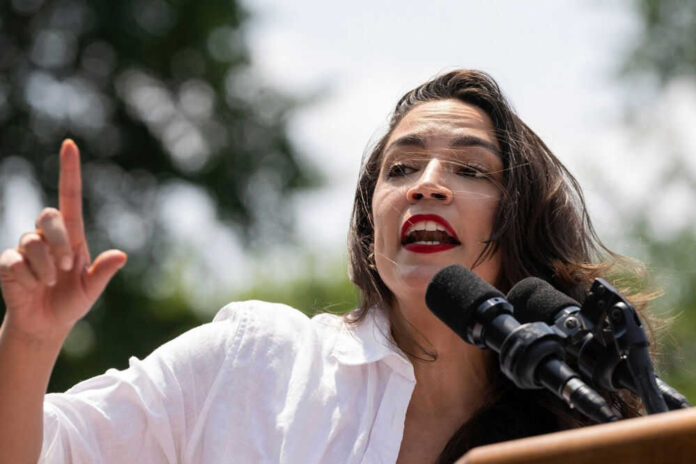
(LibertyInsiderNews.com) – Rep. Alexandria Ocasio-Cortez’s remarks about GOP’s influence on young men have sparked a fiery debate about masculinity and politics.
Story Snapshot
- AOC accused Republicans of radicalizing young men into “insecure masculinity.”
- The remarks came during a CNN town hall with Sen. Bernie Sanders in October 2025.
- Conservative backlash highlights the partisan divide over gender and political identity.
- This controversy underscores the ongoing battle for young male voters.
Masculinity and Political Allegiance
The accusation by Rep. Alexandria Ocasio-Cortez that the GOP is manipulating young men into an “insecure masculinity” has reignited debates on masculinity and politics. This discussion took center stage during a CNN town hall where AOC criticized Republicans for allegedly exploiting the insecurities of young males. Her claims suggest that the GOP’s influence extends beyond policy to the psychological realm, where traditional masculinity is being redefined and weaponized for political gains.
Critics on the right, including figures like Senator Tommy Tuberville, quickly rebuffed AOC’s assertions, arguing that it is the Democrats who are at risk of alienating young men. Tuberville and others see the GOP’s growing appeal among young male voters not as a form of radicalization but rather as a natural shift away from progressive rhetoric that many young men feel does not represent their values. The GOP’s messaging, they argue, resonates with young men feeling marginalized by “woke” culture.
Shifting Voter Demographics
Recent electoral trends indicate a significant shift among young male voters toward the GOP. In the 2024 presidential election, exit polls revealed that over half of men aged 18–44 voted for Donald Trump. This demographic shift has prompted the Democratic Party to launch a $20 million study aimed at understanding and reconnecting with young male voters. This move underscores the urgency with which Democrats are approaching the issue, recognizing that losing this demographic could have long-term electoral consequences.
These developments highlight a broader cultural conflict over masculinity, with traditional gender roles being questioned and redefined in the political arena. The GOP’s portrayal as defenders of traditional masculinity against progressive challenges contrasts sharply with the Democratic focus on addressing issues like “toxic masculinity.” The framing of these debates often involves caricature and misrepresentation, further complicating efforts to engage young men authentically.
Cultural and Political Context
The controversy surrounding AOC’s remarks is not an isolated incident but part of a larger cultural and political battle over masculinity and identity. The Democratic Party’s attempts to engage young men are complicated by accusations that their rhetoric is hostile to traditional masculinity. Conversely, the GOP has capitalized on these perceptions by positioning themselves as allies to those who feel disenfranchised by progressive ideologies.
This ongoing debate reflects deeper societal changes, including economic and social shifts that have left many young men feeling uncertain about their place in the world. Political analysts suggest that feelings of alienation and economic insecurity are driving some young men toward conservative politics, where they find a sense of identity and belonging that seems lacking elsewhere. As both parties grapple with these dynamics, the stakes for future elections could not be higher.
Copyright 2025, libertyinsidernews.com





























